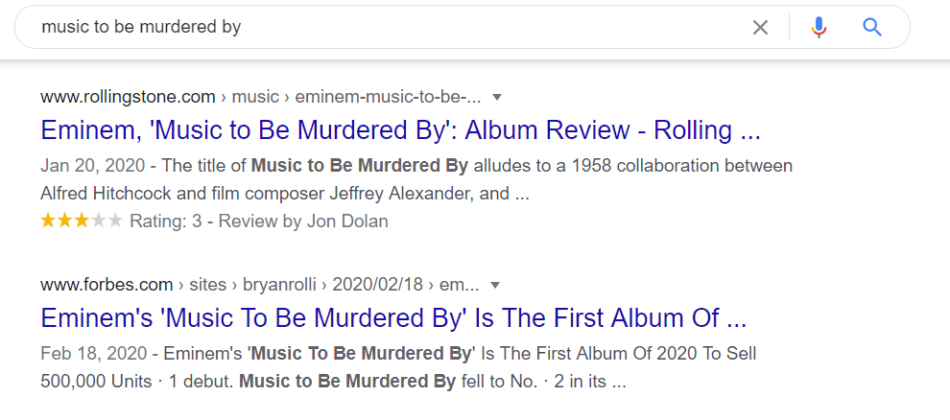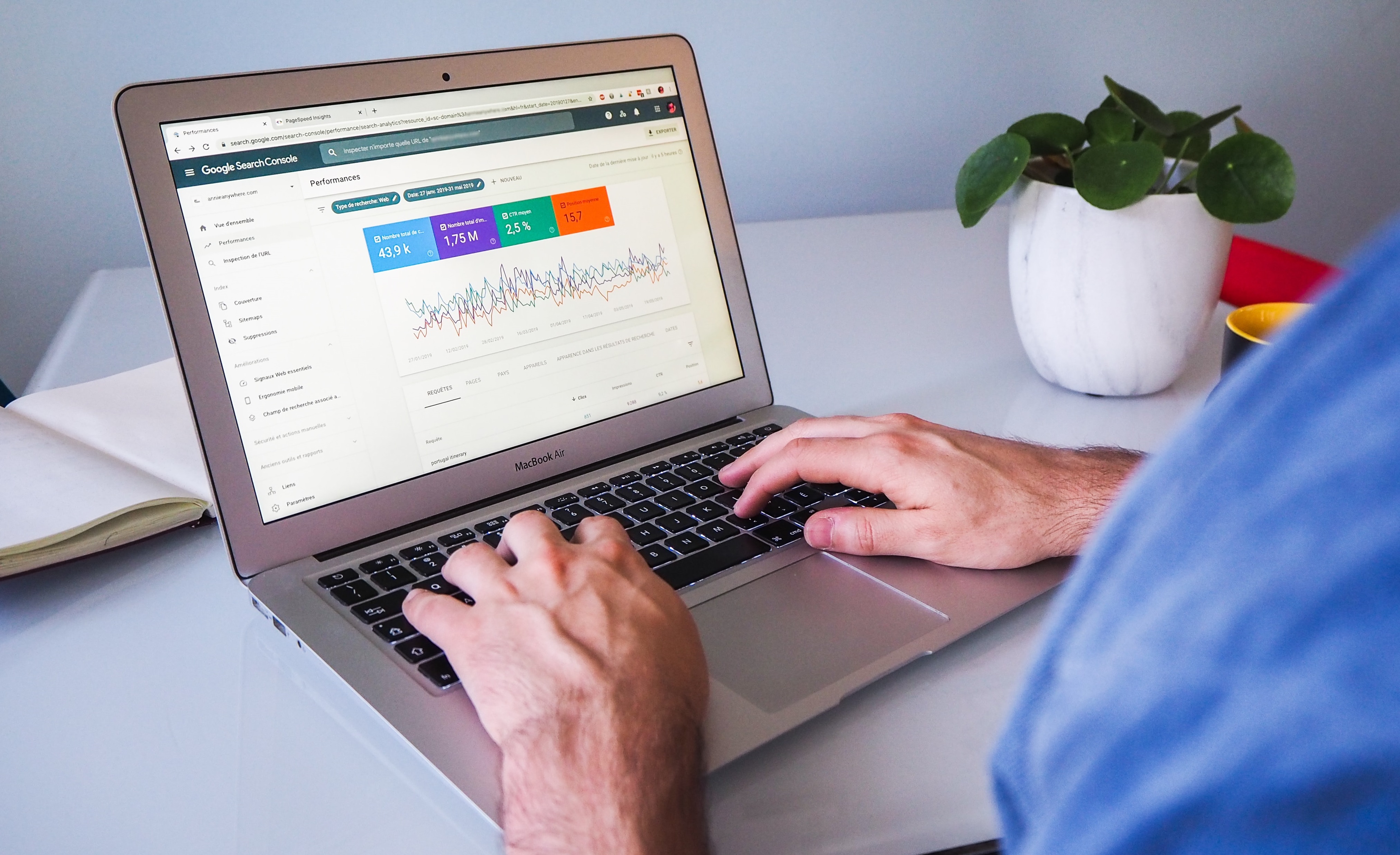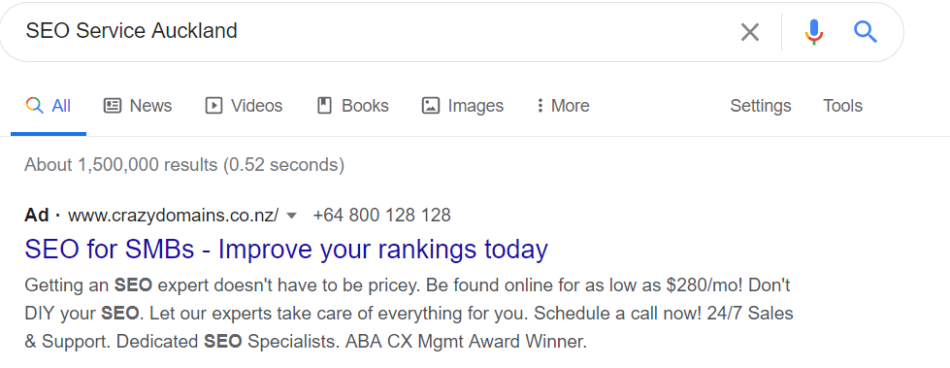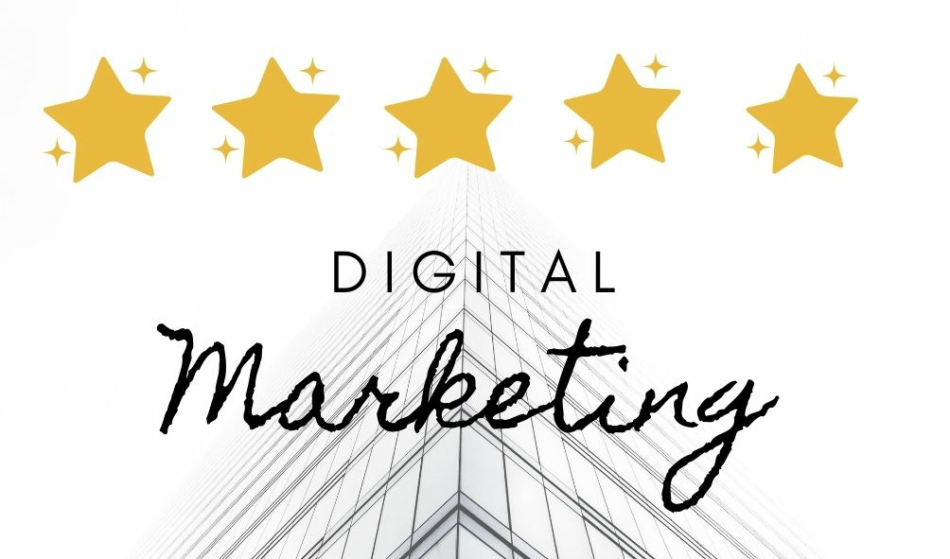In the world of digital marketing, the basis of an effective brand convergence approach is search engine optimization (SEO) and pay-per-click (PPC) advertisement. A systematic approach to market your business provides more customers and related material; so that more goods and services can be transformed.
Although these two fields tend to contribute to shared targets, many advertisers consider them to be entirely different approaches to increasing traffic on the website, generating sales, etc. By splitting these activities, marketers limit their businesses and their future ROI (return on investment) from search marketing efforts.
What is SEO?

Photo Courtesy of Google
The search engine optimization approach concentrates on the website in search results for search engines, like Google and Bing. This technique is a digital marketing strategy.
You can use various strategies to increase (or to what extent) your visibility in the search results when you understand how SEO works. SEO is all about finding the right keyword for the right page or post.
What is PPC?
Why intermix SEO and PPC?
The reality is that data and information are the foundation of all successful marketing quest strategies. Marketers cannot, without quantitative data, gain a concrete analytical insight into which strategies work and which do not, how to reach customers more efficiently or how potential positive objectives and roadmaps can be developed.
However, it’s worth noting the difference between the two. SEO focuses on long-run organic traffic while PPC focuses on short-run. These two digital marketing platforms are essentially two sides of the same coin.
Since PPC and SEO are focused on Web searches, you can take advantage of your online marketing by putting your businesses on top of the search results. This joint effort ensures you maintain a place of superiority and lead qualified clicks.
Thankfully, search engines and other platforms provide you enough data to prioritize data and information for making SEO and PPC more predictable, actionable that crosses both sides of the digital marketing bridge. If you’re unsure of how to get started with PPC marketing, hire a professional in this field by choosing the best PPC proposal that you receive from candidates.
Some key reasons why marketers combine SEO and PPC are:
1. Shared Keyword Data

Photo Courtesy of UberSuggest
The shared keyword details of all SEO and PPC marketing strategies are among the many bonuses that should be noted. In both campaigns, you can get twice as much data to evaluate, which keywords have higher conversion rates and where to integrate these into your overall strategy.
In deciding which campaigns or keywords are successful and which don’t keep track of data, it is crucial because too much data is not available. You can better understand the success of your campaigns and how to modify your overall marketing strategy if necessary, with the benefits of the shared keyword.
In comparison, those who run campaigns through Google Ads have access to better data than those who use the Keyword Planner as a tool for analysis. Therefore, SEO teams can make the most of this data by cross-referencing the details.
2. Increased Brand Awareness
When a customer clicks on an advertisement for the PPC, he or she is taken to a landing page to read about a company and its products. From there, they could further explore the website to get the brand’s better gauge. In other situations, the page can distract them and rebound.
The above example of a SEO Agency in Auckland clearly shows what a landing page should look like. A landing page should have a purpose as well as a call to action button to either buy your products or services.
Although this could be a little disheartening, the user has already heard about the business and about what it offers from the PPC ad. If they search in the future for similar goods or services, they can recall their experiences with the website of the company and click on its organic lists.
PPC ads essentially tend to create publicity for a product, while customers will not instantly transform which, in the future, will lead to greater organic traffic.
3. Increased CRO
Using this blended SEO and PPC approach, you will build on what you have learned and adapt it to each other to boost the Conversion Rate Optimization (CRO) initiative.
You should incorporate aspects of this in your marketing plan if, for example, a PPC ad moves. You may have developed and started incorporating a series of compelling Calls-to-action (CTA) into your web-pages.
CROs can take time in most cases, especially if you rely on organic traffic. However, you can use your paying traffic with PPC ads to provide instant insights into the design and copy of your website.
There are hundreds of companies benefiting from PPC advertisements. PPC works well for companies who are willing to diversify their keywords and experiment. Having a great meta description and title does not guarantee you success. A great landing page can help your business attract new visitors and convert them into customers.
However, some companies don’t enjoy the success of PPC. A false move will cost you when you spend your money on paid ads. Most novice marketers launch their PPC campaigns without understanding the pitfalls and believing that all they need is some capital and high-volume keywords.
These plans will lead to disappointment and you will not turn the money and time spent into the big ROI you expect.
You should learn what works and what doesn’t with the adoption of PPC and SEO. SEO and PPC will exchange useful knowledge as a single entity that offers the team unique visibility into the digital marketing strategy.
4. Improved Customer Experience
Since Google constantly strives for better user experience (UX) with deployments such as the first mobile index or its latest update on the BERT algorithm, retailers must keep up with the search giant if they wish to continue to rank successfully.
Since UX is important to SEO, and SEO can help feed PPC campaigns with valuable knowledge of how consumers search for goods, it is fair to share SEO and PPC information to shed light on what can lead to better campaigns and experienced consumers.
5. Competition Research
To recognize your competition’s queries, use the PPC Auctions Insights Report. Test them in PPC and see if you are transforming. Consult your PPC test sheet. Prioritize top conversion in organic search, focus on and focus on keywords with valuable relevant content, but don’t forget the keys that help conversions. Using Analytics to organize consumers together using keywords, their expectations, and their positions in the shopping funnel.
When you have developed a measurement strategy, you can define the content for which people work before conversion, show it and send it to users, and then point back to them and send it to a funnel at the next level.
The PPC Auction Insights analysis will also inform you the possible depletion of competitors’ resources in the future. This helps you to organically answer questions with lower entry barriers.
Your rivals work hard to persuade the same target group to be converted. Google AdWords Management provides a wide variety of knowledge available in your competition that detects potential competitors. It also lets you understand how the posts and keywords are graded, as opposed to the competition.
Google competitive analysis typically takes a sequence of specific investigation lines: keyword research, content research and backlink study. There are various tools and methods to aid in this process of figuring out the perfect keyword or keywords.
If you are producing content for your business then the keyword or keyphrase should focus on your niche. For example, if you are creating content for your business that focuses on social media marketing, then you should figure out the keyword or keyphrase that relates to marketing or social media marketing. And if you are running an agency that offers on-page SEO services, then you should focus on content related to keyword research and SEO optimization.
If you have a digital or content marketing agency then, your keywords and content should focus on providing information on digital or marketing trends rather than fashion trends.
Your company will identify online competitors with a marketing strategy that combines PPC and SEO data. You should look at ways in which the SEO department can use methods such as the Google Ads auction study to evaluate the perception of competitor share.
6. Control Negativity
Often, negative PR and community news are encountered by your company. You may use a built-in digital marketing plan to improve exposure for your business using PPC and SEO.
In this situation, you are not able to lure consumers into purchasing a product or service with keywords and ad campaigns. You can use keywords and advertising promotions to get consumers to hear the story. You will tell your story by using SEO and PPC together.
7. PPC Data to Develop Content Marketing Strategy
Please see what ads do well, and use the text in those ads to encourage SEO design ideas. To learn which of your landing pages work best, you can easily pull PPC data from Google Ads or Analytics and create content across those pages.
To gain data on which subjects are popular, monitor your maximum clicking levels for content network advertising, and then create content around these topics that will improve your website organic traffic.
SEO and PPC Collaboration Summary
- Keyword data and PPC conversion rates can be used in organic search.
- The traffic for your website increases when and if your visitors click through the advertisement and CTRs through organic results.
- PPC and SEO combined increase brand awareness and awareness in search engine results because of organic and paid results.
- You can easily test multiple sets of keywords in PPC and use them in the future as a long-term SEO strategy.
Blending SEO with a PPC marketing strategy will help you grow your search strategy more effectively.
Organic and paid campaigns can provide you with additional data for compilation and review and can provide you with new insights into your target audience, to enhance your SEO and PPC strategies.













